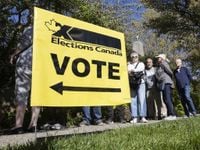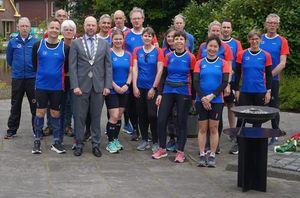Canadians are heading to the polls on Monday, April 28, 2025, after a campaign that lasted just over a month, with a record 7.3 million voters having already cast their ballots. This federal election, marked by economic uncertainty and external pressures, particularly from the United States, will determine whether interim Prime Minister Mark Carney will secure a full four-year mandate or if the Conservative Party will reclaim power after over nine years of Liberal governance.
Voters across Canada will begin casting their ballots starting at 8:30 a.m. local time in Newfoundland and Labrador, the easternmost province, which is 7 a.m. ET. The election is taking place against a backdrop of heightened tensions due to U.S. President Donald Trump's tariffs on Canadian exports and his controversial remarks about potentially annexing Canada as the "51st state." Carney, who became Prime Minister on March 14, 2025, after Justin Trudeau's resignation, has positioned himself as a defender of Canadian sovereignty. "I reject any attempts to weaken Canada, to wear us down, to break us so that America can own us," Carney stated during a press conference in late March.
As the election approaches, the atmosphere has been further complicated by a tragic event in Vancouver, where a vehicle attack at a Filipino street festival resulted in the deaths of 11 people. Carney paused his campaigning on April 27 to address the nation, expressing his condolences. "Last night families lost a sister, a brother, a mother, a father, a son, or a daughter. Those families are living every family's nightmare," he said, visibly emotional.
Polling data leading up to the election shows a tightening race between Carney's Liberals and the Conservative Party, led by Pierre Poilievre. While the Liberals were previously leading in the polls, the Conservatives have gained ground, with recent figures showing the Liberals at 42.8 percent and the Conservatives at 38.8 percent, according to a CBC poll aggregator.
Carney, a former governor of the Bank of Canada and the Bank of England, has emphasized his experience in navigating economic challenges. He has pledged to "build things in this country again" to reduce reliance on the U.S. and to stand up for Canadian workers and businesses. "My solemn promise is to stand up for Canadian workers, to stand up for Canadian businesses," he reiterated in a recent address.
In contrast, Poilievre has framed the election as a battle against the "Ottawa elites" who have governed for too long. He has criticized Carney as merely a continuation of Trudeau's policies. "The same people who ran Justin Trudeau are now running Mark Carney," Poilievre remarked, urging voters to choose change. His platform includes promises to cut taxes, streamline bureaucracy, and exploit Canada’s natural resources more aggressively.
As Canadians prepare to vote, the election has already seen a significant increase in early voting, with long lines reported at polling places. Elections Canada noted that at least 7.3 million voters had participated in advance polls, marking a 25 percent increase from the last federal election in 2021.
Despite the push for change, the election has also raised questions about the integrity of the voting process itself. Elections Canada has opted to use traditional paper ballots and hand counting rather than electronic tabulators, a decision that surprised some voters accustomed to technological advancements in voting. James Hale, a spokesperson for Elections Canada, explained that this method remains the best approach for efficiency and security, stating, "We will continue to study automatic ballot-counting machines and report any significant findings to Parliament."
Experts have weighed in on the decision to stick with hand counting, suggesting that maintaining public trust in the electoral process is paramount. Heidi Tworek, a professor at the University of British Columbia, noted that hand counting is viewed as a transparent method that allows for observation by candidates and their agents. "Hand-counting appears to be the best way to maintain trust in the federal election," she said.
As the final hours of campaigning wind down, both Carney and Poilievre are making last-minute appeals to voters. Carney's campaign has focused on his ability to navigate the economic challenges posed by U.S. tariffs, while Poilievre has sought to capitalize on public dissatisfaction with the current government. The outcome of this election could have significant implications for Canada's future, particularly in its relationship with the United States.
As Canadians head to the polls, many are reflecting on the issues that matter most to them, from economic stability to national sovereignty. The election results will not only shape the immediate political landscape but also set the tone for Canada's future in a rapidly changing world.




